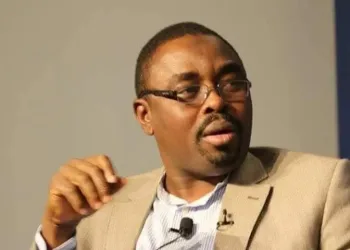By Ezenwa Nwagwu
In recent weeks, agitations for the creation of new states in Nigeria have resurfaced and gained traction. While the agitation itself is not new, the ongoing debate, which is part of the constitution amendments review, presents yet another chance for a robust conversation on governance in Nigeria and, more importantly, on what is truly driving these endless calls for new states.
As at last count, the House of Representatives Committee on Constitution amendment had received 46 memoranda requesting the creation of new states, alongside 117 proposals for new local government areas (LGAs).
On the surface, the agitations for state creation seem to be fuelled by perceived marginalisation. However, the reality goes much deeper than that. While we can not dismiss genuine concern of marginalisation, it is, however, true that states created in the past did not end cries of marginalisation. It is my opinion that creating new states will also not address cries of marginalisation.
What will truly end this cycle of genuine cries of marginalisation is the kind of honest discussion I hope we can have. Because unless we confront and resolve the root issues, these agitations will simply keep recurring. In fact, for every new state created, there will be a new set of ethnic minority who will still complain about being marginalised. We have seen this patten repeatedly.
Anytime I hear the conversation on state creation, I see it as a distraction – an industry, carefully maintained by those who profit from turning constitutional review into an annual jamboree. This distraction is unhealthy because it is designed to divert attention from their failure to govern. Worse still, it costs the country millions of naira every legislative year – money that could have been channeled into real development and tangible impact in our rural communities.
My aim here therefore, is for us to reflect deeper, beneath the surface, to explore what is really at the heart of these demands, and to challenge us to wear a new thinking that will help redirect our collective energy and resources toward initiatives that genuinely address the real triggers for agitations of states creation.
It is important to state clearly that this debate on state creation is not new. It has been ongoing for decades and was one of the most contentious issues during the 2014 National Conference, of which I had the privilege to be a member. If my memory serves me correctly, there were over 100 separate requests for new states during that conference alone.
First, let me say categorically that at the heart of the agitations for state creation is failure of governance. For me, these endless calls for new states to be created are an indictment on the ruling class both at national and the Sub-national level.
Contrary to the belief that marginalisation is the main driver of agitations for state creation, the real trigger is alienation, people feeling cut off from the processes and benefits of governance. It is this sense of being ignored, excluded, and unheard that fuels frustration. The common man in Nigeria does not necessarily care about drawing new boundaries; what he wants is visible development, fair representation, and a government that listens.
What concern does the common man have with the creation of a new state if he already has access to quality public services—good roads, reliable power, clean water, functional healthcare, and public schools where his children can learn? For him, it is not the name of the state on his address that matters but the quality of life he can enjoy within it.
My point is that if we address the triggers—poor development, weak representation, and lack of fairness—we will naturally douse these agitations. But the elites are not concerned with addressing these triggers.
Secondly is to say that State creation is an elite conversation for control of resources. For some, it has become a tool to remain politically relevant to their local communities. It does not truly serve the need of the common man. It is primarily driven by elites who feel short-changed in the current setup. It has more to do with how those elites feel marginalised in the current setup rather than how the common man feels.
Creating new states would mean more governors, commissioners, legislators, and civil servants. The argument always canvassed by the elites and promoters of state creation is that this will bring government closer to the people. But in reality, how true is this? Can they generate more IGR to cater to the needs of the people?
In contrast, this will lead to increased demand for federal revenue allocations in a country already grappling with debt, inflation, and subsidy removal consequences. We are deodorising indolence, attempting to create new “feeding bottles” for a federal system where everyone comes cap in hand to the center. And even what is shared at the center hardly reflects in the daily lives of ordinary Nigerians.
Let me restate that I am not against the constitutional right of citizens demanding for state creation. It is their rights guaranteed under the constitution. But I’m more concerned with how to deal with the core issues that fuels that agitation.
My point is that state creation is far more than simply drawing a new line on the map. It is about building functional political and economic units capable of delivering development, fostering inclusion, and sustaining themselves without perpetual dependence on federal allocations.
If we were to carry out a viability audit on the areas agitating for new states, many would fail the test. The reality is that most of them do not have the economic base, infrastructure, or governance capacity to sustain themselves. Creating more states under these conditions would simply multiply the number of dependent, underperforming units in the federation, adding to the burden rather than reducing it.
One of the mistakes successive military administrations made was creating states as political gifts to please allies. As a result, many of the states we have today are largely unviable—existing more to pay civil servants’ salaries than to drive real development.
The current reality is that many existing states can not even survive without monthly federal allocations. We hear governors complain every day that they don’t generate enough revenue to provide basic services. So, something that is not working, you say, want to do more of it. Why do we need to reinforce failure? My point, therefore, is why create a new state when many of the ones you have are not working.
If we conducted a leadership audit from 1999 until today, could we honestly say that Nigerians have felt the benefits of representation? Sub-national governance is almost in absentia. The current agitations are more about poor leadership 7and less about equality.
One way to address these agitations is ensuring that we bring representation closer to the people. At the level of representation, we have 469 federal lawmakers—109 senators and 360 members of the House of Representatives, plus hundreds more in state assemblies.
Each of these lawmakers has constituency offices. What does a constitutional office do? It is set up by the National Assembly so that constituents can meet with their representatives. These offices are supposed to be mini public hearing centres, active channels for citizens to vent their opinions, and influence governance. Instead, many are dormant. That is why people are losing their sense of belonging—they have nowhere to express grievances constructively.
If each one of the lawmakers both at federal and state activated their constituency office as a real listening post, we would not need these endless constitutional amendment tours masquerading as public hearings.
Besides, most of the so-called zonal meetings of public hearings have been more of political jamboree. Those who will speak have been strategically selected, empowered, and even given talking points by political actors. If you want true public hearing, go to your constituency office and listen to the concerns of the common man.
It is public knowledge that senators get N1 billion annually for constituency projects.
President Obasanjo, in his wisdom, introduced constituency projects to take governance to the grassroots. That vision has been abandoned. Instead of drawing new lines on the map, we should restructure and revitalise the states we already have so they can deliver real governance.
It is time to shut down the state creation circus and focus on fixing what exists. Without that, every new state we create will simply become another branch of the same old problem. we need to rejig what exists in a way that it helps satiates the desire of the majority of our people. That is my position. So, do I want you to create more states? I don’t think that is what I want.












